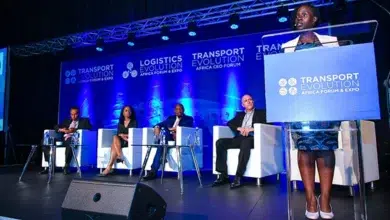Gauteng Gambling and the Digital Divide: Who’s Being Left Out?

Gauteng gambling has rapidly evolved over recent years, with online platforms transforming how residents place bets and enjoy gaming. However, as the industry embraces digital innovation, a significant challenge has emerged—the digital divide. This divide means that many people in Gauteng, especially those in low-income and rural communities, are being left out of the growing digital gambling economy due to limited internet access, high data costs, and low digital literacy.
The Rise of Gauteng Gambling
Gauteng is South Africa’s economic heartland and the most populous province, making it a key player in the country’s gambling sector. According to the Gauteng Gambling Board’s Annual Report 2023/24, the province collected over R262 million in gambling revenue last year. This reflects the combined strength of traditional casinos and a booming online gambling market.
Nationally, South Africa’s gross gambling revenue reached a record ZAR 59.3 billion in 2023/24, with sports betting—largely online—accounting for more than half of this total. Despite this growth, online gambling remains legal in only certain provinces, creating an uneven playing field (igamingbusiness.com).
Understanding the Digital Divide in Gauteng
While Gauteng boasts an internet penetration rate of approximately 81.9% (Statistics South Africa 2023), this masks deep disparities. Many residents in informal settlements and poorer communities lack access to affordable smartphones, stable internet connections, and data.
Digital literacy also remains a hurdle. Many, especially older adults and those with limited education, find it challenging to navigate online betting platforms, apps, and payment systems, limiting their ability to participate fully in Gauteng’s digital gambling space.
Who Is Being Left Behind?
The digital divide in Gauteng gambling affects:
- Low-income communities, due to the high cost of devices and data.
- Older adults, because of limited digital skills.
- Residents of informal settlements and rural areas, where infrastructure is often poor.
These groups miss out not only on the entertainment and convenience of online gambling but also on potential economic opportunities.
The Broader Impact
The exclusion caused by the digital divide has far-reaching consequences. Economically, it restricts gambling market growth and limits tax revenue that supports public services. Socially, it deepens inequality by providing access and financial benefits primarily to those already digitally connected.
Steps Being Taken to Close the Gap
Efforts to bridge this divide include:
- The South Africa Connect initiative, which aims to provide affordable, high-speed internet access to the majority of South African households within a few years (gov.za).
- Gauteng’s Department of Economic Development is working to improve digital infrastructure and launch literacy programmed to empower underserved communities (gpl.gov.za).
- Online gambling companies are adapting platforms to be more data-efficient and user-friendly to include users with limited digital access.
ALSO READ: The Influence of Local Culture and Traditions on Gambling Choices in Gauteng
Looking Ahead: Building an Inclusive Gambling Future
Gauteng gambling is on an irreversible digital path. To ensure inclusive growth:
- Infrastructure must improve to expand affordable internet access.
- Digital literacy programmes should be scaled to equip all users.
- Responsible gambling education must target digitally vulnerable groups.
By addressing these challenges, Gauteng can foster a gambling industry that offers equal opportunities and benefits for all its residents.



